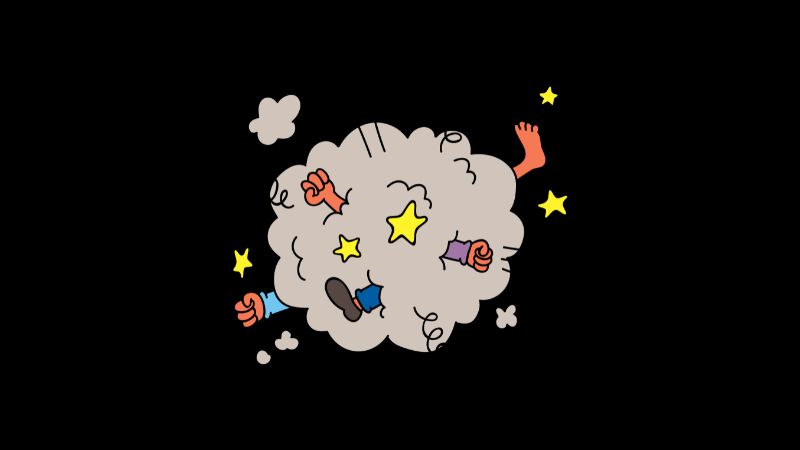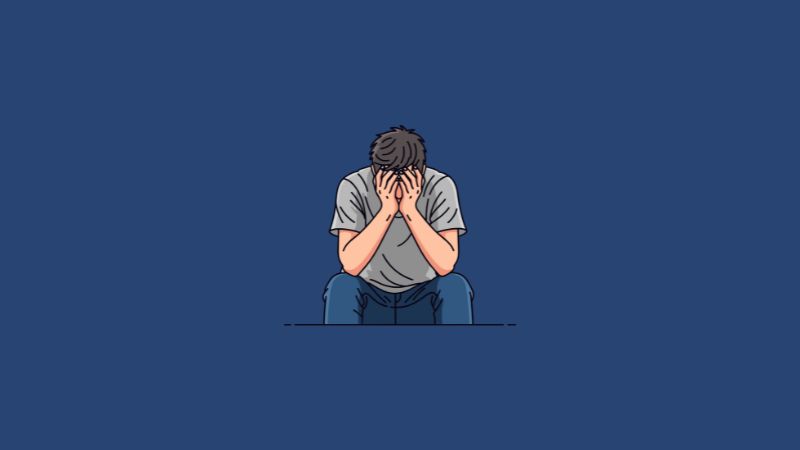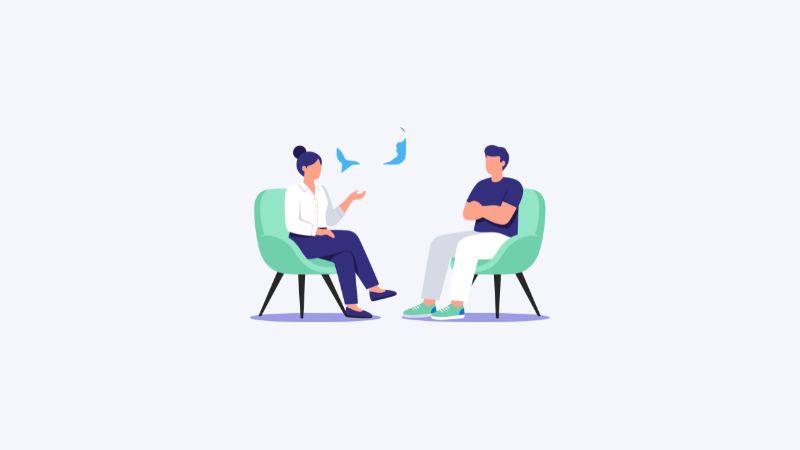Table of Contents
Affiliate link notice: As an affiliate of BetterHelp and other third-party vendors, We will receive compensation if you make a purchase using the links provided on this page. For more information, visit our disclosure page.
Last Updated on August 26, 2025 by Randy Withers
The internet can be a lifeline for news, community and connection. It can also become a pressure cooker, keeping you in a constant loop of outrage, anxiety and division. When algorithms feed you only the voices you already agree with — and when those voices grow louder and more extreme — your mental health can start to take a hit.
The more time you spend in those echo chamber media spaces, the harder it can be to pull yourself out. With the right strategies, you can stop the cycle, protect your mental health and even enjoy healthier online interactions.

Why Online Polarization Is so Damaging for Mental Health
Political and social divides aren’t new, but online platforms can intensify them in ways previous generations never experienced. Social media algorithms push content that gets the most engagement, and outrage tends to trump reasonable debate, so “clickbait” remains a popular marketing tactic. Because of this loaded digital environment, your feed can quickly turn into an echo chamber media funnel — a curated stream of single-perspective content that reflects and reinforces your existing views.
What are online echo chambers? They’re digital environments where you’re mostly exposed to homogenous opinions and information that match your own. While this can initially feel validating, it can also shrink your perspective, reinforce stereotypes and make differing views feel like personal attacks. This especially applies to political and religious views, where similar opinions attract like-minded social feeds, but expressing differences can trigger shaming and cyberbullying.
This isn’t just a political issue — it’s a mental health one. Polarized digital spaces can lead to higher stress, greater emotional reactivity and deeper feelings of social isolation. When your views are challenged online, you may see it as victimization instead of a healthy debate. The people who “attack” you could do so to defend their entrenched views, not because of you as a person.
Perhaps you’ve also launched a tunnel-vision statement at someone else online. In fact, over 40% of Americans report experiencing online harassment. The resulting digital stalking and threats may originate from political views, social sharing and comments.
When you’re already vulnerable to depression, this constant exposure to high-conflict opinions and emotionally charged content can make recovery harder and symptoms worse.
7 Ways Polarization Intensifies Depression
Polarization doesn’t just shape how you see the world — it changes how you feel in it. The mental health toll can be subtle at first, showing up as irritability or fatigue, but over time, it can deepen into patterns that make depression harder to manage. Here are some of the most common ways it can happen.
1. Boosts the Us-vs.-Them Mentality
A single perspective paints people in black-or-white terms, such as us vs. them or right vs. wrong. When you start categorizing others this way, you risk seeing them as opponents rather than complex individuals. This mindset can lead to chronic tension, alienation and more frequent social withdrawal — all of which can deepen depressive symptoms.
2. Fuels Anger and Rumination
Anger isn’t just a fleeting emotion online — it reinforces and amplifies your upset that your candidate didn’t win the election or your team lost the Super Bowl. In polarized spaces, it can become a constant state. You might find yourself replaying arguments in your head, imagining comebacks or scrolling for the next thing to get outraged about.
This cycle of rumination can lock you into negative thinking patterns that make depression more complicated to manage because you keep stewing in what’s happening or has happened instead of moving on. Even if you scroll on, you get exposed to more of the same.
3. Normalizes Hopelessness About Change
If every post you see frames the world as hopelessly divided, you may start to believe there’s nothing you can do to change it. Over time, this can lead to you developing learned helplessness. This is the belief that your actions don’t matter and is a known risk for depression. You start to think the world is as you see in your social feed, that there’s nothing you can do about it and that you are powerless.
When you only see footage of war, you could believe that the whole world is fighting. A balanced feed would include current events, sports, hobbies, entertainment and pets. A few cute animal videos can help balance echo chambers.
4. Amplifies Loneliness
Online connections can feel real, but they often lack the depth of face-to-face relationships. When polarization causes you to lose friendships or avoid social events, you may have fewer meaningful offline connections. That isolation can make depressive feelings more intense and persistent. With 29% of Americans suffering from depression, isolation quickly leads to clinical mental health challenges that may require medical intervention.
5. Reinforces Cognitive Distortions
Curated content often relies on all-or-nothing language and extreme examples. This style of communication can reinforce harmful cognitive distortions if you already struggle with depressive thinking. For example, you may believe the world is unsafe and that certain groups are completely untrustworthy.
6. Feeds Algorithm-Driven Echo Chambers
People who spend more time in echo chambers become deeply entrenched in their beliefs and more resistant to new information or any view that challenges their “truth.” This narrowed perspective can fuel frustration, mistrust and cause constant low-level anxiety, chipping away at mental health.
7. Drains Emotional Energy
Scrolling through heated debates and inflammatory content can be exhausting. This type of emotional fatigue or compassion burnout can leave you feeling numb or disengaged from causes you care about. That lack of motivation can spill over into other areas of life, making it harder to find joy in things you once enjoyed.
How to Break Free and Protect Your Mental Health: 6 Paths Forward
You can’t change how social media algorithms work, but you can take steps to limit their impact on your well-being. Start with these tips.
1. Limit Your News and Social Media Diet
Set clear time limits on how much news and social content you consume daily. Consider using app timers or browser extensions to help you stick to them. Oppose viewpoint bias by diversifying your information sources so you don’t rely on only a single perspective.
2. Rebuild Offline Connections
Make a deliberate effort to connect with people in person. Join a local hobby group, volunteer for causes you care about, or spend more time with friends and family. These relationships can help you feel more grounded and less dependent on online validation. 3.
3. Practice Cognitive Flexibility
Challenge yourself to read or listen to different viewpoints, without immediately reacting or judging. This can help you break the mental rigidity that the echo chamber media enforces. Use mindfulness techniques, such as introspection and reflection.
4. Prioritize Restorative Activities
Balance online engagement with activities that restore your energy, like spending time in nature, exercising, journaling or practicing meditation. These activities help counteract the emotional drain of polarized discussions.
5. Create Personal Boundaries for Political Talk
Decide in advance when, how and with whom you’ll engage in political or religious conversations. This might mean muting certain topics, avoiding late-night debates, or letting people know you prefer to keep discussions respectful and solutions-focused.
6. Seek Professional Support if Needed
A mental health professional can help you develop coping strategies if you find yourself feeling persistently hopeless, irritable or isolated. Cognitive behavioral or acceptance and commitment therapies effectively break unhelpful thought patterns.
Signs You’re Breaking Free From the Polarization Cycle
It’s unlikely that you’ll wake up one morning completely free from the pull of online echo chambers, but you will notice changes. You might experience the following:
- Feeling less emotionally hijacked by news headlines
- Enjoying conversations with people you disagree with, without these becoming heated debates
- Spending more time on hobbies, relationships and self-care
- Noticing a lighter, calmer mood overall
Final Thoughts
Online polarization can feel inescapable, especially when echo chamber media reinforces your views, but you have more control than you think. By setting boundaries, seeking diverse perspectives and prioritizing offline connections, you can protect your mental health and perhaps even rediscover a sense of optimism about the world.







